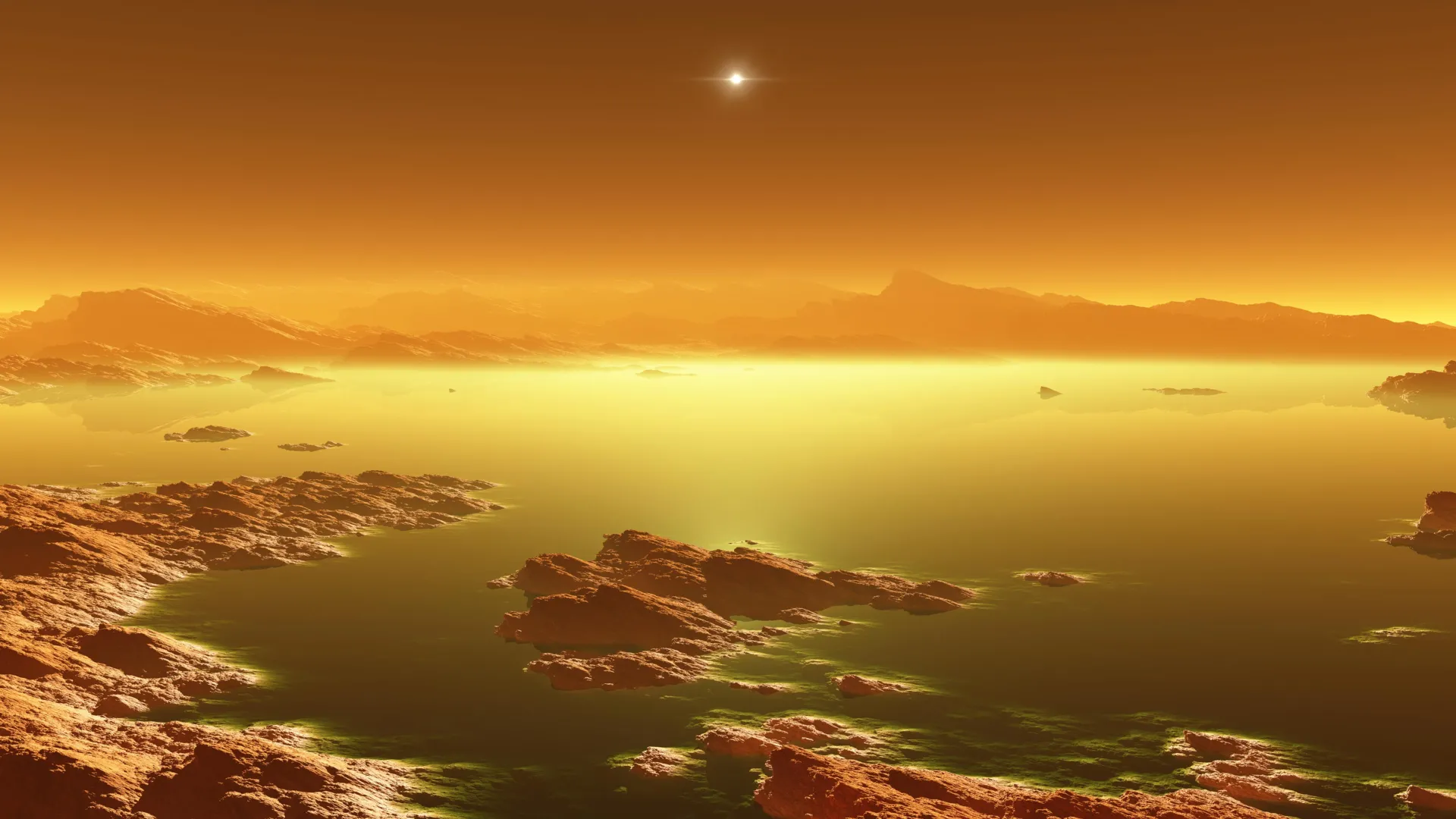Now Reading: NASA Discovers Potential for Primitive Life in Titan’s Alien Lakes
-
01
NASA Discovers Potential for Primitive Life in Titan’s Alien Lakes
NASA Discovers Potential for Primitive Life in Titan’s Alien Lakes

Swift Summary:
- NASA research suggests that cell-like vesicles could naturally form in the hydrocarbon lakes of Saturn’s moon Titan.
- Titan,unique for having liquid on its surface outside Earth,has lakes and seas filled wiht hydrocarbons like methane and ethane rather than water.
- Amphiphile molecules may self-organize into vesicles under Titan’s conditions, similar to early Earth processes but tailored for freezing temperatures and hydrocarbon environments.
- Vesicle formation on Titan could mimic the structure of protocells necessary for life by forming bilayer membranes through interactions near sea surfaces or splashing raindrop-induced droplets.
- Titan’s atmosphere primarily consists of nitrogen and methane, with a meteorological cycle involving methane clouds, rain, river channels, erosion processes, evaporation, and a complex organic chemistry powered by sunlight.
- These findings contribute to understanding how molecular precursors of life might evolve in alien environments different from Earth’s water-based ecosystems.
- Future missions to Titan include NASA’s Dragonfly rotorcraft that will study the surface composition but won’t analyze vesicle formation due to equipment limitations.
Indian Opinion Analysis:
Titan presents an intriguing challenge to existing paradigms about potential extraterrestrial life. While Earth’s origins are bound intimately with liquid water as a cradle for biology’s chemical processes, research suggesting that viable life precursors may form in hydrocarbon environments expands our understanding of habitability criteria. For India-positioning itself increasingly as a space exploration leader through ISRO-this offers multiple lessons.
Scientific advancements such as this underline opportunities for global collaboration in astrobiology. India might consider leveraging expertise gained from missions like Chandrayaan or Mangalyaan toward future interplanetary projects addressing broader questions about life’s universality across solar system bodies like Europa (another candidate) or even distant moons.
This advancement also coincides with humanity’s long-term efforts at off-world habitation strategies spanning science diplomacy too-a growing global domain where India’s neutral stance permits significant input concerning ethical questions around alien biospheres while aiding technological proliferation globally via emerging industries including satellite applications adapting nitrogen-hydrocarbons mix spectrometry analytically supportive interpretations nested together Data cooperative shared policy-setting Framework enhancements



























